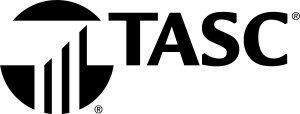Flexible Spending Accounts (FSA)

A Flexible Spending Account is a program that the Federal Government allows the County of Sonoma to sponsor. It enables you (the employee) to save Federal, State and Social Security (FICA) taxes on the money you use to pay for eligible expenses. The tax savings will increase your take-home pay.
A Valuable Benefit - If you choose to participate in this valuable benefit, you and your eligible dependents can pay for medical, dental and vision expenses, as well as dependent care expenses, on a tax-free basis.
When You Enroll - When you enroll you determine the amount of expenses you anticipate for the upcoming year. The annual benefits you elect are paid for with pre-tax dollars deducted from your paycheck over 26 pay periods. These dollars are subtracted from your gross earnings before taxes are taken out.
How It Works - Under this plan you can use pre-tax money to pay for different kinds of expenses, including: your medical,dental and vision care expenses that are not covered by your insurance and the cost of caring for a dependent while you work.
Your Spendable Income Increases - When you elect pre-tax benefits under a flexible benefits plan, you lower your taxable income on your W-2; therefore, you pay less in taxes and increase your spendable income. Depending on your tax bracket, this plan can save you 30% to 40% on qualifying expenses.
There are different kinds of Flexible Spending Accounts available where you can use pre-tax dollars for specific expenses.
Who's Expenses are Eligible? - Under the plan, only the expenses of a participant, a participant’s spouse or a participant’s dependent(s) qualify for pre-tax treatment. If you are unsure if a person qualifies as an eligible dependent, please refer to the P&A website for a more detailed definition.
Health Account FSA - Covers medical, dental and vision expenses that are only partially covered or not covered at all by your insurance, including insurance deductibles, insurance co-payments and over-the-counter medications.
Dependent Care Account FSA - Covers amounts you pay to daycare centers, after school programs, babysitters, caregivers or elder care so that you and your spouse can work.
 Translate
Translate